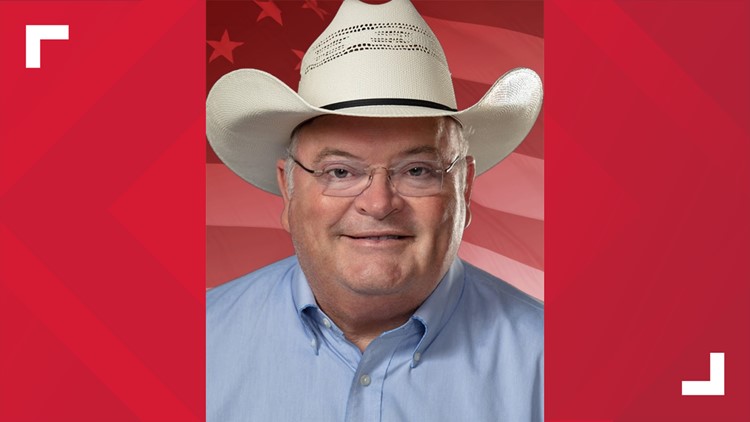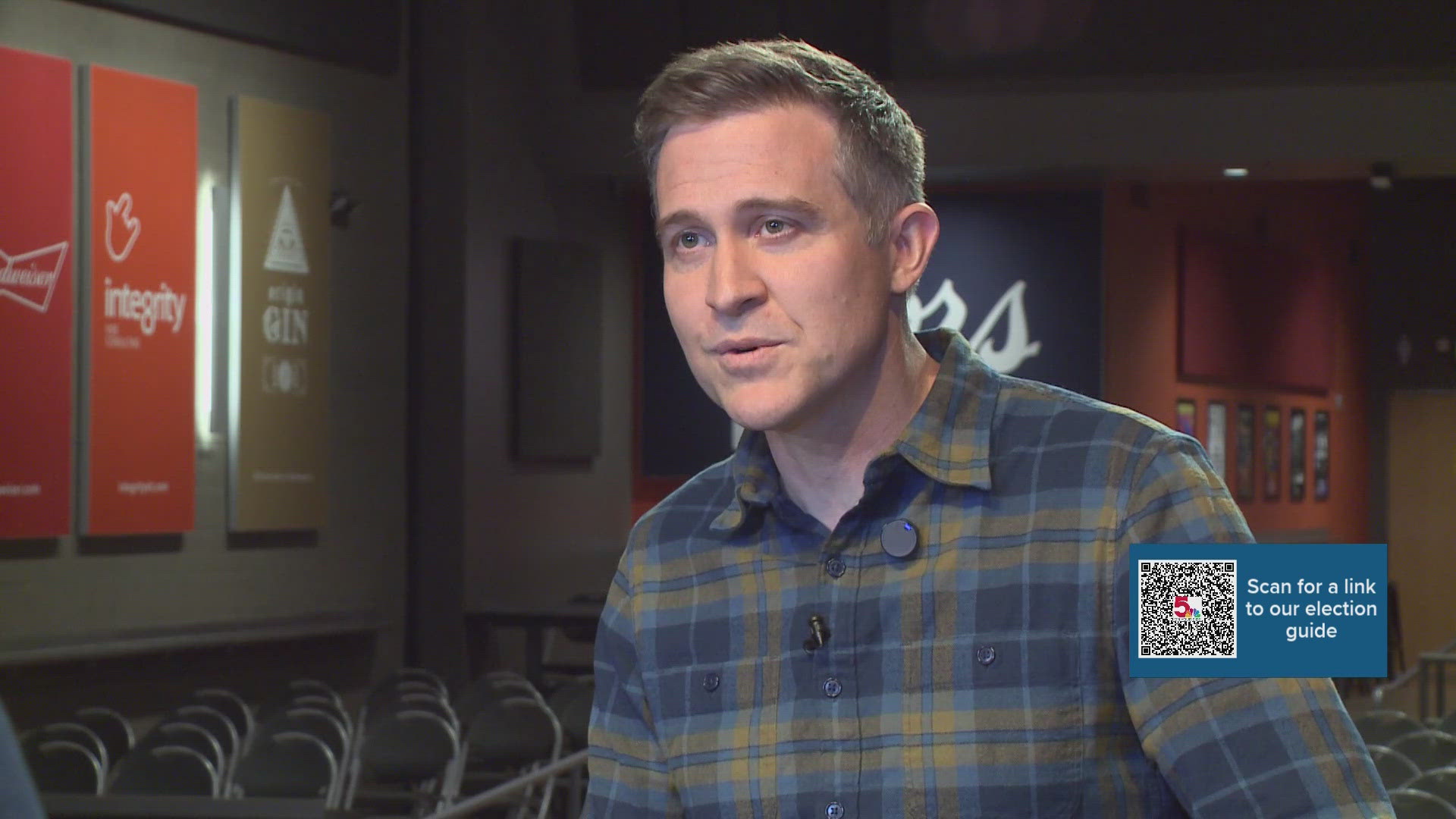ST. LOUIS — Billy Long is a Republican candidate for U.S. Senate in Missouri. The primary is August 2. One Republican will go on to face candidates of other parties in the general election in November.
U.S. Rep. Long won his first election to Congress in 2010, replacing former Congressman Roy Blunt. Now, Long hopes to follow in Blunt’s footsteps yet again, though public polling shows the straight-talking, cowboy hat-wearing rural auctioneer has struggled to break through the crowded field of other GOP contenders.
KNOW TO VOTE: Missouri primary 2022: Voter guide for St. Louis area
Long has firmly embraced former President Donald Trump’s agenda, holding out hope for a last-minute boost. Long represents the southwest corner of Missouri in Congress in a district that borders Oklahoma, Arkansas, and Kansas, a rural region his campaign calls “MAGA Country.”
Long has developed Trump’s taste for labeling his opponents with colorful insults. He dubbed Vicky Hartzler “Mini Liz Cheney,” Eric Schmitt as “Chicken Schmitt,” Eric Greitens as “Snidely Whiplash" in a tweet criticizing the leading contenders in the race after a TV debate was canceled.
5 On Your Side candidate survey
To the extent any single member of Congress can influence the U.S. economy and labor market, what immediate steps would you take to reduce the cost of living burden Missourians face during this period of inflation?
Long: Well, inflation is caused by all this money we're spending and all this money we're printing here in Washington, D.C.. For 12 years, I voted against every bit of that spending that I can. I know that Vicky Hartzler voted for 17 omnibuses, "minibuses" and continuing resolutions, but yet still stand at Lincoln Day and say, "We need to cut spending, and the crowd will cheer." So let's get real about this. We need to cut spending in Washington to get our economy going again.
Missouri state law prohibits women and girls from seeking abortion procedures at any time during their pregnancy, regardless of circumstances involving rape, incest, or other unwanted or unplanned pregnancies. Would you support a similar law at the federal level? If not, then which women or girls should be allowed access to safe, legal abortion procedures?
Long: I think that if you're talking about abortion, they always want to go to the rape and incest question. They don't want to talk about the millions and millions and millions of children that have been slaughtered since Roe v. Wade passed in 1973. This is a states' issue. They talk about the Supreme Court overruling Roe v Wade. That didn't outlaw abortion—it just puts it back on the states, and that's where it should be. There is a young lady in Springfield, Missouri, that's a producer on one of the radio programs down there, and her mother was raped at 13 years old and decided to go through with the pregnancy. So she probably be a pretty good one to go talk to if you want to find out why they should be allowed a chance at life.
What specific policies or practices would you support from Congress that could directly improve safety and reduce violent crime in Missouri?
Long: The first thing we need to do is quit vilifying being a police officer, that all this defund the police and everything that the Democrats and Joe Biden and the progressives have pushed for over the last few years has put us in a terrible, terrible position. In Kansas City, Missouri, they didn't have officers class last year training people to be police officers because they couldn't find enough people. They're losing officers daily. A Kansas City police officer pulled someone over the other day and was going to issue them a $35 ticket for expired tags, and that person got out and shot and killed that police officer. This thing of vilifying the police has got to stop—all this defund the police. We need to fund the police, we need to help them and every which way we can to stop all of this.
What do you perceive as the single greatest threat to American democracy and how would you address it in Congress?
Long: Well, as everyone knows we live in a democratic republic, and to preserve that, we need to make sure everyone's vote counts and to get people out to vote. If you're not confident in your voting system, you're not going to turn out to vote, and unfortunately, a lot of people don't even register to vote. And those that register to vote, a lot of them don't go to the polls on Election Day. And I think a lot of that goes back to the issues of voting, thinking that they're not fair elections. We need to do everything we can to make sure they're fair elections. The state legislatures are the ones that are supposed to change the laws on voting in every state according to the Constitution. That didn't happen last time in 2020—secretaries of state, judges, unelected folks on top of that changed their election laws willy-nilly. They mailed out ballots to everyone that ever lived in the house in Georgia. I've got a friend in Dallas that his mom lives in Minnesota. He got a ballot in his name mailed to his mom's house. He hadn't lived there in 35 years. So we need to tighten up the voting laws and make sure that everyone knows their vote counts, and we want to preserve our democratic republic.
To what extent do fossil fuels contribute to the changing climate? To what extent should Congressional action attempt to alter that trajectory?
Long: I think in Congress, we need to do everything we can to work towards clean water, clean energy, clean air. Everyone in their right mind wants those things. But you have to be realistic, and you can't—and you saw the ice storm down in Texas last year that caused all the havoc down there. They've gone away from fossil fuels too soon. And we need to get off of fossil fuels as soon as possible, but we can't do it in an unrealistic fashion.
Public polling shows most Americans believe the U.S. Supreme Court has become too political. What reforms, if any, should Congress take to reshape or reimagine the makeup or behavior of the court?
Long: I think that nine is perfect, and I think that Democrats and Republicans need to come together and agree that it's not OK for someone to attempt to assassinate a justice on the Supreme Court. Justice Kavanaugh had someone show up at his house that driven out from California saying he wanted to kill Kavanaugh and he had the means to do it on him. And the Democrats don't speak out against that. They tell tell 'em to chase them out of restaurants, they tell 'em to chase Republicans out of restaurants. We need to back off of all this vitriolic hatred and go back to loving each other and working together as a country.
Which Constitutional amendment is your favorite and why?
Long: The First Amendment is by far in my favorite because you have to have freedom of speech before you get any other freedoms. If you can't speak out and use your freedom of speech, then you're going to be in trouble.
What is your favorite movie, most influential book, and go-to genre of music?
Long: Without question, my most favorite movie is "The Wizard of Oz," and as far as a book, I would have to say "Blue Ocean Strategy." I give that out to everyone that I can. I think that it's thinking outside of the box on everything. One part of that book talks about circuses, how circuses were dying and live animal acts were dying. They'd give you free tickets to go to the circus to sell you high-priced popcorn and toys. And along came Guy Laliberte, and he came up with Cirque du Soleil, which used people instead of animals.. Instead of giving them tickets away, they were charging upwards in the hundreds of dollars—and it's worked extremely effectively. And the "Blue Ocean Strategy" talks about not swimming in the red ocean where everyone is competing and beating each other up, and the water's bloody. You want to swim to the blue water. So "Blue Ocean Strategy" is definitely my favorite book. And as far as music, there's no contest here: country music—the older country music, I like better, to be honest. And George Jones is a classic. "He Stopped Loving Her Today" has to be the all-time best country music ever written or sang.



